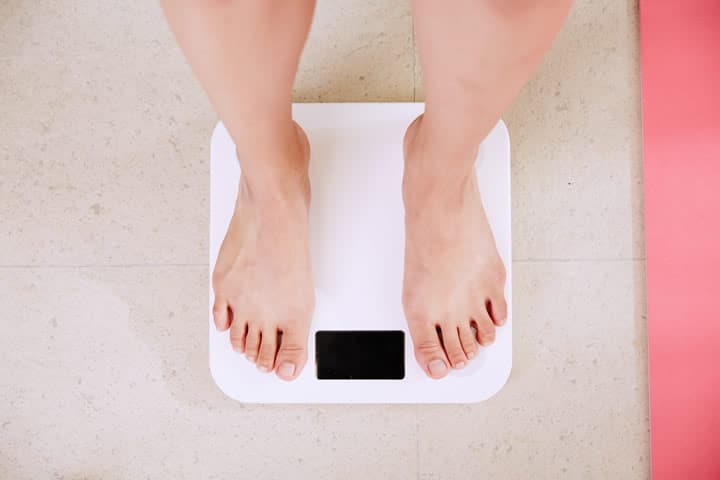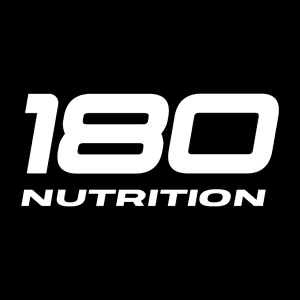180 Nutrition: There is no “one size fits all” approach to losing weight, yet research is continuously showing that increasing your protein intake is one of the best ways that you can approach a weight loss plan. Although you may be inclined towards trying quick-fix fad diets (“lose 4 kilos in 4 days”, “the soup diet”, “carbs are your enemy!”), the reality is that these are almost impossible to maintain and often lead to yo-yo dieting, with adherents quickly regaining any weight they may have lost.
In contrast, a diet that focuses on increasing protein is remarkably simple. You can still enjoy a wide selection of whole foods and you don’t have to drastically cut out any particular food group. And considering the wide variety of foods that offer high levels of protein (fish, eggs, dairy, lentils, meats, chickpeas, etc.), it is easy to incorporate protein into every meal throughout the day. For anyone looking for a little extra help, there are plenty of high-quality protein powders and bars available which can be enjoyed on their own or incorporated into delicious recipes.
So, why does increasing your protein intake produce such positive and consistent results? There are a few well-documented reasons:
The Effect of Protein on Your Hormones
Some days you may feel like you don’t need much food to keep you full, yet other days you may be ravenous despite having just eaten a full meal. Why? It’s actually got a lot to do with your hormones. If your body is producing high levels of a hormone called ghrelin then, as a result, you will feel hungry (even if you’ve eaten sufficient amounts of food). On the flip side, if you start producing a different range of hormones (often referred to as the “satiety” hormones, these include GLP-1, cholecystokinin and peptide YY) then you will feel fuller quicker. Studies have shown that increasing the amount of protein we eat can result in more “satiety” hormones and less “hungry” hormones.
When You Feel Full, You Stop Eating
A big problem with controlling weight gain and promoting weight loss is managing portion control. You may feel like you’re starving, so you load up a plate with a heaping portion and then finish it all before you start to feel full. But since increased protein intake helps to regulate the hormones that tell you when you are hungry, you’re less likely to dish up oversized portions and more likely to stop eating as you feel full. As a result, you will consume fewer calories. In fact, one study found that participants would naturally eat 400 fewer calories throughout the day just by making sure that 30% of what they ate consisted of protein.
The Reduction in Cravings
One of the hardest battles you will fight on a weight-loss journey is the battle with cravings. All good dieting intentions may go out the window when 3:00 pm rolls around and you’ve got a hankering for a bag of chips/chocolate bar/sausage roll, or after dinner when you feel like some nice creamy brie washed down with a glass (or two) of wine. Wouldn’t it be easier to resist the allure of treats if you could minimise your cravings? Recent studies have shown that eating more protein can effectively reduce cravings by up to 60%, particularly the kind that you get late in the evenings (when you’re feeling tired and your defences are lowered). Interestingly, this proved most effective when a high protein breakfast was eaten.
You Lose Fat, Not Muscle
The human body has an inbuilt survival mechanism which can actively work against you when you’re trying to lose weight. Basically, if you aren’t consuming enough calories for the body to function efficiently, then you start to lose muscle mass, and this, in turn, can trigger a metabolic slowdown. Designed to keep you alive longer if you’re ever stranded without food, metabolic slowdown means your body will burn fewer calories. Increasing your protein intake (while still maintaining a calorie-controlled diet) helps to prevent you from losing muscle mass, ensuring that the weight you do lose is just unwanted fat; this helps to prevent a metabolic slowdown.
You Can Burn Calories Digesting Protein
Have you ever heard that eating celery is “negative calories” because you burn more calories digesting it than you gain in consuming it? While this isn’t actually true in the case of celery, your body does burn some calories in the process of digesting your food. Whereas some foods require little effort to digest (think fats and carbohydrates), others (like protein!) require quite a lot. In fact, approximately 30% of the calories you consume eating protein will be burned off during the process of digestion.
Protein Increases Your Metabolism
You may have heard someone airily prescribe their trim figure to a “good metabolism”, but what does this actually mean? Your metabolism is a series of chemical processes that transform food into energy. The faster this process happens, the more food you can consume without it converting into stored fat. While there are many “metabolism boosters” available from health-food stores, one of the simplest and most effective ways to increase your metabolism is by eating greater quantities of protein. Best results are found to occur when approximately 30% of your diet consists of good protein, eaten throughout the day.
Regardless of whether you’re losing weight to improve your health, to feel better about yourself, or fit back into your wedding dress, increasing your daily intake of protein is one of the best weight loss decisions you can make.
This article was written by Julie Scott a health enthusiast and freelance writer.







